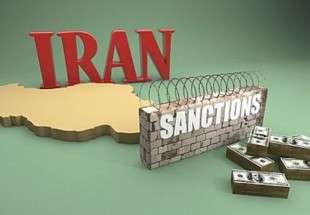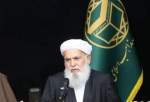It would on the face of it seem that US President Donald Trump is to accept new legislation to impose sanctions against Russia, Iran, and North Korea.
If it passes, as now seems likely according to Fars, then the measure will represent the first time that Congress, with both houses controlled by fellow Republicans, has forced its will on Trump on a major policy matter. That it comes on an issue as fraught as Russia illustrates how investigations into alleged collusion between Moscow and Trump’s team during last year’s election have cost him politically.
Not if that’s just about Iran. In this, both Republican and Democratic parties are united. That’s why Ali Akbar Velayati, a senior adviser to Leader of the Islamic Revolution Ayatollah Seyed Ali Khamenei on international affairs says Iran will respond to any failure on the part of the US to meet its commitments under the 2015 nuclear agreement, to which Washington is a signatory.
“Undoubtedly, the US breach of the JCPOA won’t go unanswered,” he said Saturday, referring to the nuclear deal, officially called the Joint Comprehensive Plan of Action. He also said the supervisory committee on the implementation of the nuclear accord would discuss the US non-compliance and make a collective decision after hearing the results of the eighth meeting of the Iran-P5+1 Joint Commission in Vienna this week.
Until then, this strategy has mainly proven ineffective at turning around the situation in the region, and by some accounts has radicalized US supporters and allies. Beyond the specific case of Russia and its territorial dispute with its neighbor, economic sanctions have been widely used since the Second World War in various parts of the world by western countries in order to trigger policy changes in independent states.
The problem is, the “sanctions approach”, praised by many Western diplomats, has almost never contributed to create a regime change. On the contrary, revolutions took place in countries that were widely supported economically by western countries, such as Egypt, Tunisia, and Yemen. One can only wonder: why is that? Part of the answer comes from the fact that from North Korea to Syria, Burma, Iran, Cuba, Sudan or Zimbabwe, economic sanctions have had no lethal impacts over the years on those countries.
From Iran to Russia, Africa, and North Korea, US administrations have long relied on financial sanctions as a preferred weapon against US adversaries. But over the past year, it’s America’s allies that are increasingly feeling the pinch, leading Washington to wonder whether its favorite economic power tool has been so overused it’s becoming ineffective and, in some cases, even counterproductive.
The US financial system is the engine of all global trade. Sanctions that are prohibitive or otherwise too restrictive to foster trade risk driving business to foreign markets — and, in doing so, broker new alliances between longtime American friends and foes. Tensions wrought by US sanctions against Russia, for example, have divided US allies in Europe that were already financially struggling before being hit with the economic penalties’ knock-on effects. That’s why the lower house of France’s parliament has voted in a nonbinding agreement to lift EU sanctions against Russia.
It’s yet another evidence that the “sanctions approach” is a true failure. New research from the Cato Institute and the Center for a New American Security has raised questions about how effective sanctions actually are — and shows mounting evidence of their negative ripple effect:
The institute has called the sanctions against Russia and Iran an “outright failure” that are “harming US economic and geopolitical interests.” But the flip side of that coin is the economic impact the sanctions have had on Europe.
The European Commission estimates sanctions cut EU growth by 0.3 percent of GDP in 2015 at a time when economic expansion was desperately needed. The Austrian Institute of Economic Research found that continuing penalties against Russia could cost more than 92 billion euros, or $104 billion, in export revenue and more than 2.2 million jobs over the next few years. The financial pain is especially acute in Germany, which stands to lose nearly 400,000 jobs due to the sanctions.
This is probably why many Western officials are re-thinking sanctions’ power in lieu of other means to stare down adversaries. Brussels has urged US lawmakers to coordinate their anti-Russia actions with European partners, as Washington steams ahead with a new bill to expand sanctions against Iran, Russia and North Korea. The EU warns that unilateral measures could undermine transatlantic unity and have “unintended consequences.”
In summation, the effectiveness of Washington’s new sanctions is very much in doubt. Sanctions have failed to dissuade Iran, Russia, ad North Korea to change course. These modern states are not fragile. They haven’t stopped Iran from supporting Iraq and Syria in the war on terror. They haven’t dislodged North Korea’s leaders or forced a rollback of their nuclear and missile programs. For all the international pressure on Syria, the government is defeating America’s favorite terrorists. And Russia changing its policy over Ukraine and Syria is only a speculative possibility.
/SR
Not if that’s just about Iran. In this, both Republican and Democratic parties are united. That’s why Ali Akbar Velayati, a senior adviser to Leader of the Islamic Revolution Ayatollah Seyed Ali Khamenei on international affairs says Iran will respond to any failure on the part of the US to meet its commitments under the 2015 nuclear agreement, to which Washington is a signatory.
“Undoubtedly, the US breach of the JCPOA won’t go unanswered,” he said Saturday, referring to the nuclear deal, officially called the Joint Comprehensive Plan of Action. He also said the supervisory committee on the implementation of the nuclear accord would discuss the US non-compliance and make a collective decision after hearing the results of the eighth meeting of the Iran-P5+1 Joint Commission in Vienna this week.
Until then, this strategy has mainly proven ineffective at turning around the situation in the region, and by some accounts has radicalized US supporters and allies. Beyond the specific case of Russia and its territorial dispute with its neighbor, economic sanctions have been widely used since the Second World War in various parts of the world by western countries in order to trigger policy changes in independent states.
The problem is, the “sanctions approach”, praised by many Western diplomats, has almost never contributed to create a regime change. On the contrary, revolutions took place in countries that were widely supported economically by western countries, such as Egypt, Tunisia, and Yemen. One can only wonder: why is that? Part of the answer comes from the fact that from North Korea to Syria, Burma, Iran, Cuba, Sudan or Zimbabwe, economic sanctions have had no lethal impacts over the years on those countries.
From Iran to Russia, Africa, and North Korea, US administrations have long relied on financial sanctions as a preferred weapon against US adversaries. But over the past year, it’s America’s allies that are increasingly feeling the pinch, leading Washington to wonder whether its favorite economic power tool has been so overused it’s becoming ineffective and, in some cases, even counterproductive.
The US financial system is the engine of all global trade. Sanctions that are prohibitive or otherwise too restrictive to foster trade risk driving business to foreign markets — and, in doing so, broker new alliances between longtime American friends and foes. Tensions wrought by US sanctions against Russia, for example, have divided US allies in Europe that were already financially struggling before being hit with the economic penalties’ knock-on effects. That’s why the lower house of France’s parliament has voted in a nonbinding agreement to lift EU sanctions against Russia.
It’s yet another evidence that the “sanctions approach” is a true failure. New research from the Cato Institute and the Center for a New American Security has raised questions about how effective sanctions actually are — and shows mounting evidence of their negative ripple effect:
The institute has called the sanctions against Russia and Iran an “outright failure” that are “harming US economic and geopolitical interests.” But the flip side of that coin is the economic impact the sanctions have had on Europe.
The European Commission estimates sanctions cut EU growth by 0.3 percent of GDP in 2015 at a time when economic expansion was desperately needed. The Austrian Institute of Economic Research found that continuing penalties against Russia could cost more than 92 billion euros, or $104 billion, in export revenue and more than 2.2 million jobs over the next few years. The financial pain is especially acute in Germany, which stands to lose nearly 400,000 jobs due to the sanctions.
This is probably why many Western officials are re-thinking sanctions’ power in lieu of other means to stare down adversaries. Brussels has urged US lawmakers to coordinate their anti-Russia actions with European partners, as Washington steams ahead with a new bill to expand sanctions against Iran, Russia and North Korea. The EU warns that unilateral measures could undermine transatlantic unity and have “unintended consequences.”
In summation, the effectiveness of Washington’s new sanctions is very much in doubt. Sanctions have failed to dissuade Iran, Russia, ad North Korea to change course. These modern states are not fragile. They haven’t stopped Iran from supporting Iraq and Syria in the war on terror. They haven’t dislodged North Korea’s leaders or forced a rollback of their nuclear and missile programs. For all the international pressure on Syria, the government is defeating America’s favorite terrorists. And Russia changing its policy over Ukraine and Syria is only a speculative possibility.
/SR









